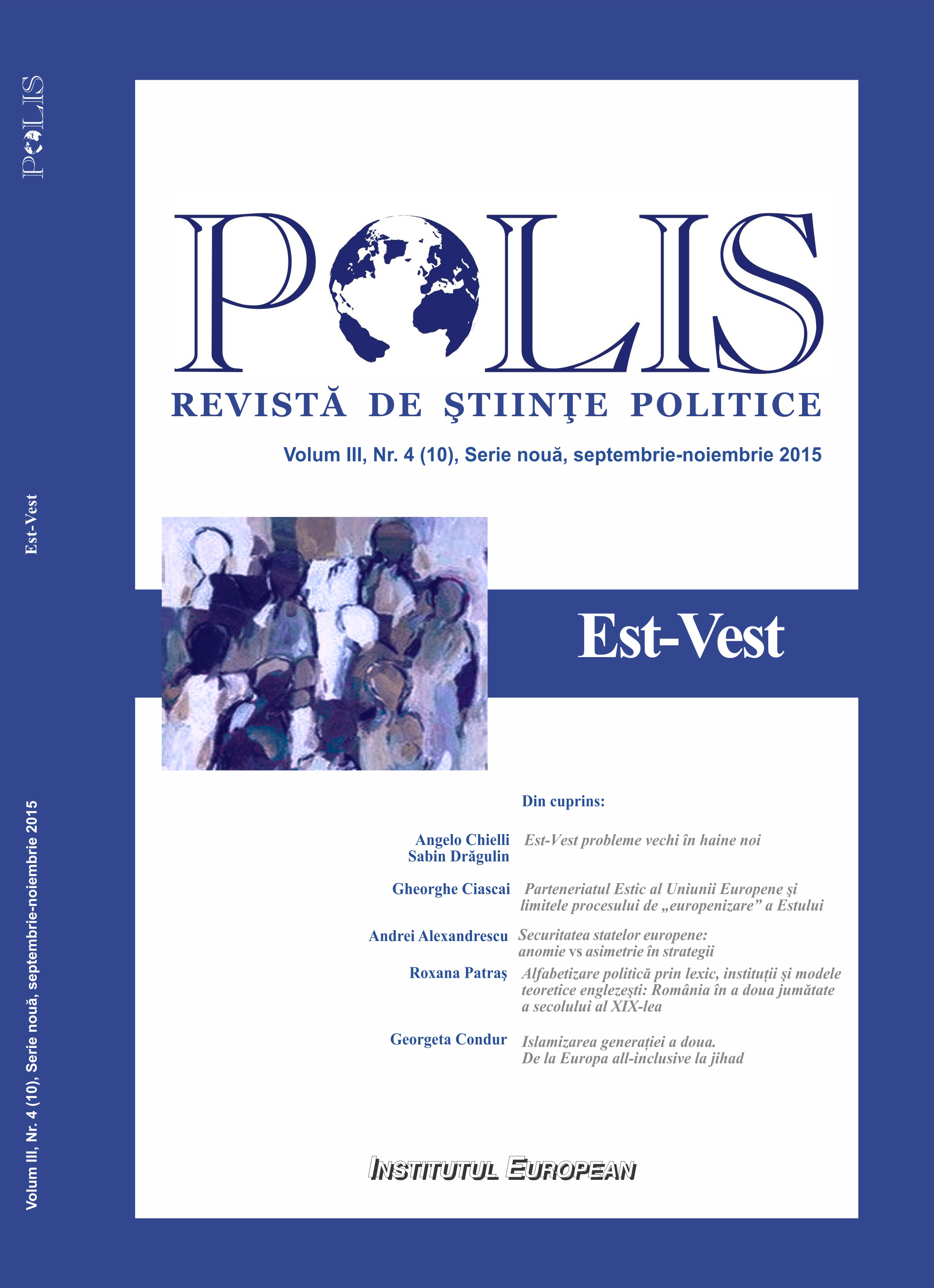Islamizarea generației a doua. De la Europa all-inclusive la jihad
The second-generation islamization. From all-inclusive Europe to jihad
Author(s): Georgeta CondurSubject(s): Security and defense, Studies in violence and power, Migration Studies, Sociology of Politics
Published by: Editura Institutul European
Keywords: Islam;migrants;jihad;terrorism;muslim;refugees;
Summary/Abstract: Starting from the summer of 2015, the massive arrival of asylum seekers in Europe opened a debate about the political, economical and security consequences of immigration in European Union. A hidden ideological conflict was transformed into a linguistic controversy: should the new-comers be named migrants or refugees? During time and development of the crisis, more and more journalists and political leaders switched from ‘refugees’ to ‘migrants’, as it became clear that many asylum seekers weren’t even from war zones.However, the main concern of the most people was related to potential security risks. An investigation into the November 13 attacks in Paris has already found that at least two of the terrorists used the Balkan route to arrive in France. But massive immigration could have further repercussions in not many years, if the hypothesis of a “second-generation islamization phenomenon”, somehow similar to Dole’s “second-generation indigenization”, is true. Having lower level needs in Maslow’s Hierarchy of Needs already satisfied, the children of the present Muslim migrants could seek to satisfy higher needs, as self-actualization, through religious identity of their parents and radicalization. Due to denial of the separation of religion and state in Islam, this could seriously threaten the Western secular state and cultural model. Being din wa dawla (religion and state), Islam is more than a religion; it is a hybrid we can call ‘relideology’, which seems to be quite attractive for young Muslims seeking self-actualization.
Journal: Polis. Journal of Political Science
- Issue Year: III/2015
- Issue No: 10
- Page Range: 337-353
- Page Count: 17
- Language: Romanian

